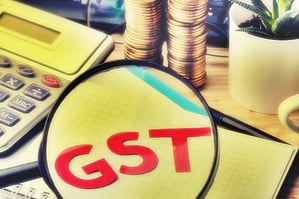Dubai: Starting today, Indian expats in the UAE will see major tax changes come into effect back home. India has overhauled its Goods and Services Tax (GST) system, scrapping the old four-slab structure and moving to just two main rates — 5% and 18%. A separate 40% slab has been kept for luxury and sin goods.
This is the most dramatic reform since GST was first launched in 2017. For families and businesses in the UAE who regularly send money, shop for Indian goods, or invest in Indian companies, today’s change directly affects prices, demand, and corporate profits.
What gets cheaper
Daily essentials: Shampoo, toothpaste, hair oil, soaps, and dental floss now fall under 5% GST instead of 18%.
Packaged snacks: Namkeens, bhujia, mixtures, and ready-to-eat foods drop from 12% to 5%.
Dairy and FMCG: Amul has already cut prices — 100g butter now costs ₹58 (down from ₹62). UHT milk has dropped to ₹75 per litre. Mother Dairy has also slashed rates on paneer, ghee, and milkshakes.
Insurance: Individual life and health insurance policies — including term plans, family floaters, and senior citizen health cover — are now fully exempt.
For Indian households, including those supported by UAE remittances, these cuts mean grocery bills and healthcare costs could ease from today.
What gets costlier
Tobacco and related products: Cigarettes, cigars, gutkha, pan masala, and chewing tobacco now face 40% GST (up from 28%).
Luxury cars and SUVs: High-end vehicles with large engines shift into the 40% bracket.
Sugary and carbonated drinks: Flavoured sodas and fizzy beverages also move to 40%.
Alcohol remains outside GST and will continue to be taxed by states individually.
What doesn’t change
Passenger transport: Road travel stays at 5% (without input tax credit). Airlines remain at 5% for economy, 18% for other classes.
Imported goods: Revised GST rates apply to imports too, including items shipped from the UAE.
Stock in market: No recall needed. Companies will only issue new price lists. Old MRP goods can still be sold, but billing must reflect new rates.
Impact for companies
Consumer goods makers like Hindustan Unilever and Dabur may benefit as lower GST boosts demand.
Tobacco firms, especially ITC, face pressure with higher taxes on cigarettes.
Retailers and e-commerce may see a surge in demand for everyday items as consumers adjust to cheaper rates.
For UAE-based investors holding Indian stocks or mutual funds, these changes will directly reflect in quarterly results.
Modi’s Sunday night address
On the eve of GST 2.0, Prime Minister Narendra Modi called the reforms a “double bonanza” for citizens, linking them to the recent income tax relief that made earnings up to ₹12 lakh tax-free.
“Everyday items will now become cheaper, from food to medicines, soaps, and insurance. With income tax cuts and GST reduction, families will save more while businesses will face fewer disputes. This is GST Bachat Utsav,” Modi said.
He also highlighted India’s progress in lifting 25 crore people out of poverty in the past 11 years, calling them a new “neo-middle class” with rising aspirations.
As Navratri begins today, Modi framed GST 2.0 as a festival of reform: “From the first day of Navratri, the country is taking a big step toward Aatmanirbhar Bharat.”
Why it matters for you in UAE
Remittances go further: Families in India will spend less on groceries, dairy, and personal care.
Imported Indian goods: Expect slightly lower prices in UAE stores selling Indian packaged snacks or dairy, once new MRPs filter into exports.
Investments: If you hold Indian stocks or mutual funds, consumer and FMCG companies may see stronger growth, while tobacco firms could weaken.
Travel and insurance: If you buy policies in India, premiums are now exempt from GST, directly lowering costs.
India’s GST 2.0 is now live. For millions of Indian expats in the UAE, it means cheaper basics, costlier indulgences, and a clearer tax system that touches both family budgets and investment portfolios.
Sign up for the Daily Briefing
Get the latest news and updates straight to your inbox
Network Links
GN StoreDownload our app
© Al Nisr Publishing LLC 2026. All rights reserved.

